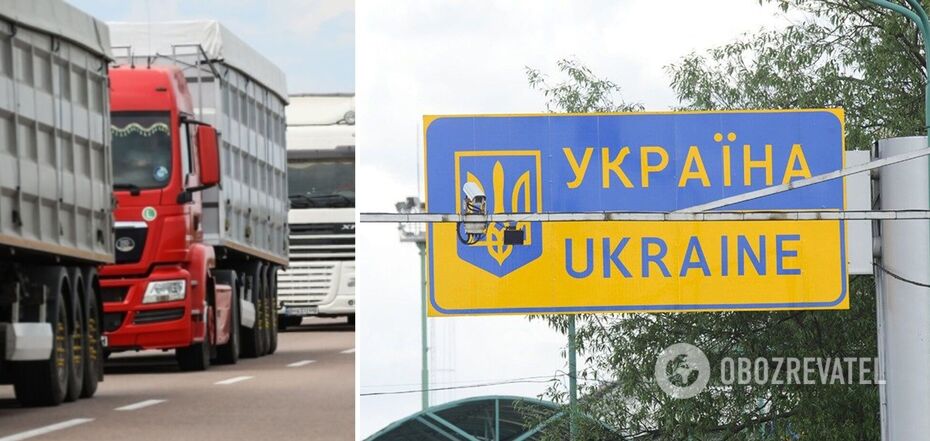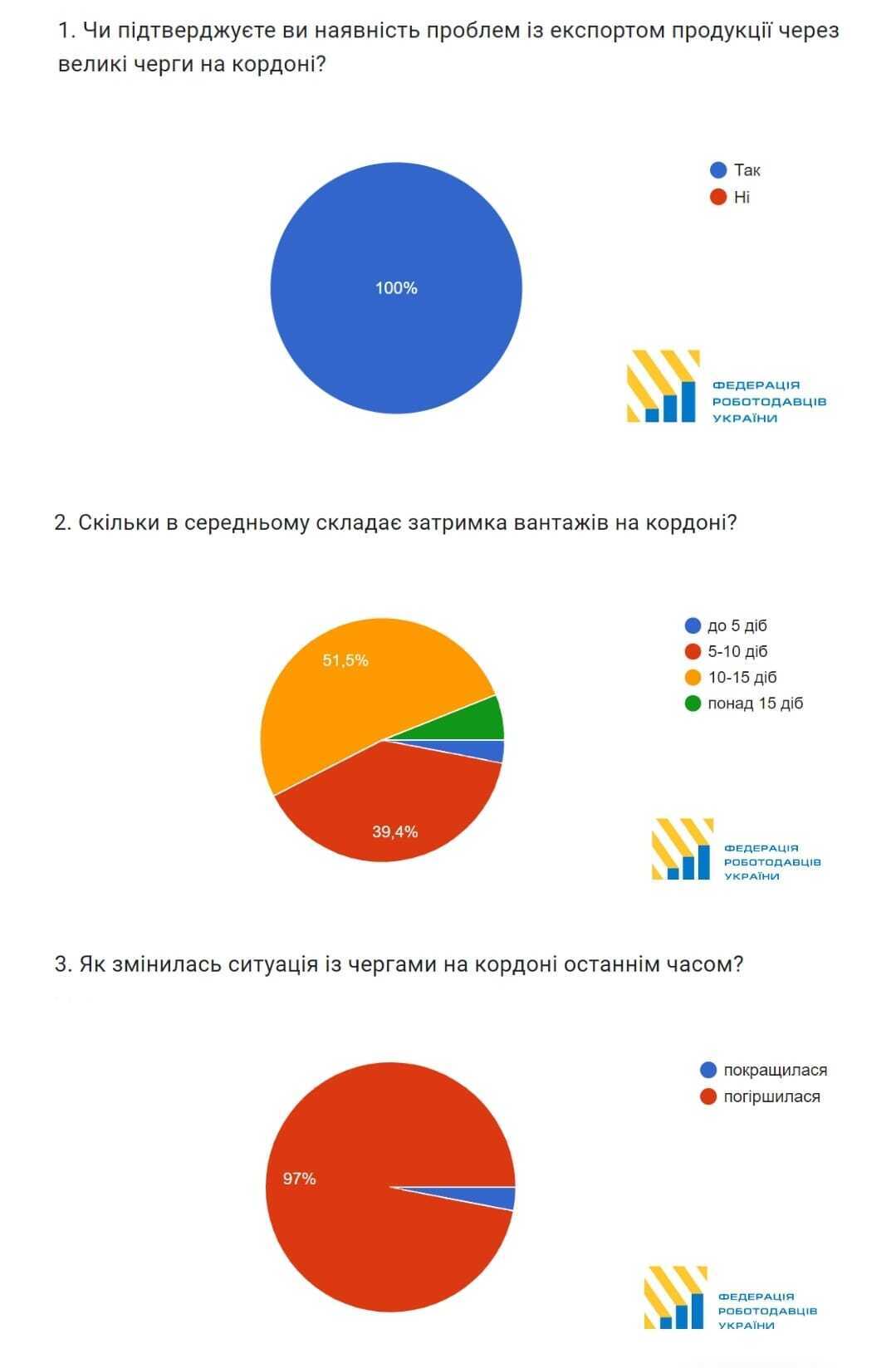News
Queues at Ukraine's border have grown 3-4 times: exporters sound the alarm over colossal losses
In recent months, queues at Ukraine's western border have increased 3-4 times. This is affecting Ukrainian companies - the cost of delivering goods has increased, and businesses are suffering serious financial losses.
This is evidenced by the results of a survey conducted by the Federation of Employers of Ukraine (FEU) among its member companies. Thus, entrepreneurs confirmed the existence of problems with the export of products due to long queues at the border. The average delay of goods is:
- for 40% of respondents - 5-10 days;
- for the majority (53%) - 10-15 days;
- the remaining 27% reported either a quick border crossing (up to 5 days) or a delay of more than 15 days.
"Almost all respondents said that the situation with queues at the border has worsened. All respondents believe that the procedures related to border crossing (in particular, eChezhda) need to be improved," the survey says.
"We would like to note that the Federation of Employers understands the existence of objective reasons, such as the military aggression of the Russian Federation, blocking and unstable operation of ports," the FEU stated. However, the checkpoints on Ukraine's western border have become the only transportation corridors for Ukrainian exporting companies not only to EU markets, but also to markets around the world.
As a result, long queues affect the final cost of Ukrainian products. For example, the rates of road carriers have increased by 300-700 euros per trip due to queues. And a pharmaceutical manufacturer incurred additional costs of UAH 1.3 million in September-October for the operation of specialized refrigeration equipment for the transportation of Ukrainian products alone.
"For comparison, according to the manufacturing companies themselves, freight from Chinese ports to Europe costs $600-800 per container with a delivery time of up to 30 days, while the cost of delivery from Ukraine to Europe is almost three times more expensive and almost no different in terms of waiting time," the FEU notes.
In this regard, the Federation of Employers of Ukraine and the Association of International Road Carriers of Ukraine have developed their proposals to the government to reduce queues of vehicles at the border. According to experts, strategic steps should be as follows
- to intensify the work of controlling authorities at the border, using the available tools under international agreements, to strengthen cooperation with the controlling authorities of neighboring countries in order to synchronize the work of services at border checkpoints;
"The importance of this factor is evidenced by the fact that the queues have increased 3-4 times since the summer, while the amount of cargo from Ukraine has not changed significantly," the FEU notes.
- hold negotiations with neighboring countries on the reconstruction of existing checkpoints or, if possible, increase the number of checkpoints on the border;
- in accordance with European practice, to introduce separate lanes for foreign economic operators that have acquired the status of AEO, simplifications under the Convention on the Common Transit Procedure or other simplifications under the Customs Code of Ukraine;
- intensify efforts to introduce joint control at checkpoints.
Proposals for the operation of the electronic queue system for border crossing:
1) the Ministry of Infrastructure should be the administrator of the eCheckpoint project, and Ukrtransbezpeka should be the direct executor. Instead, it is advisable to entrust these functions to the Ministry of Internal Affairs and the State Border Guard Service, since the organization and control of traffic and border crossing are within their competence;
2) the procedure for implementing the Electronic Border Crossing Queue project, approved by the Cabinet of Ministers of Ukraine on December 2, 2022, No. 1349, does not provide for criteria for prioritizing certain goods. For example, perishable, military, dangerous, etc;
3) the electronic queue also does not take into account the priority for vehicles crossing the border under the terms of the Customs Convention on the International Transport of Goods under Cover of TIR Carnets (TIR Convention) of 1975, as provided for in Article 360 of the Customs Code of Ukraine, and the Convention on a Common Transit Procedure. The stakeholders agreed on the need to introduce the relevant changes during a meeting of the Verkhovna Rada Committee on Finance, Taxation and Customs Policy on July 6, 2023.
The following issues require further study:
- cars in the queue with and without cargo (special attention should be paid to vehicles for fuel transportation)
- to add the possibility of replacing the driver and trailer to the "eCherga" ("queue" in Ukrainian) system (for health and other reasons) without re-registration and artificially increasing the queue;
- introduce a system of fines and administrative penalties for unscrupulous carriers who register a vehicle as empty, but in fact it is loaded.
Member companies of the Federation of Employers note that if the situation with waiting at the border continues, they will not be able to fulfill most foreign contracts. Given the shrinking domestic market, all this will lead to a reduction in production, and thus jobs, state budget contributions, and foreign exchange earnings.
As reported by OBOZ.UA, earlier the Federation of Employers of Ukraine publicly appealed to President of Ukraine Volodymyr Zelenskyy, Prime Minister Denys Shmyhal and National Bank Governor Andriy Pyshnyy. The FEU considers it unacceptable to shorten the period for returning foreign currency earnings of exporters from 180 to 90 days.
Only verified information on our Telegram channel OBOZ.UA and Viber. Do not fall for fakes!




























